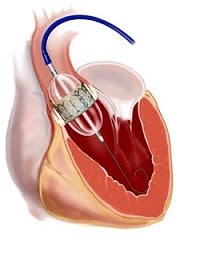By Dr. Arzhang Fallahi, Director of Interventional Cardiology at Stamford Health.
Having a healthy heart is crucial to your overall wellbeing. You may be wondering if it’s time to see a cardiologist, or how you can determine your risk of heart disease.
Dr. Arzhang Fallahi breaks down some of the reasons to see a cardiologist, when to be proactive about your heart health, some of the unique services Stamford Health’s cardiology team offers the Fairfield County community, and more.
When in doubt, it’s probably a good idea to get checked out by a cardiologist. After the age of 40, it's reasonable see a cardiologist even for a baseline evaluation.
It’s important to point out the link between diabetes and heart disease is profound—those with diabetes have two to four times an increased risk of coronary artery disease compared to the general population.
Other significant risk factors of heart disease are kidney problems, obesity and high cholesterol.
A lot of the other classic heart disease symptoms, which can lead to a heart attack if not treated, can indeed develop and worsen over time.
Once we get older, the risk for moderate to severe valve disease increases—this impacts one in ten people over the age of 75.
Especially with the COVID-19 pandemic, people may be hesitant to travel. I think location, having a good working relationship with your primary care doctor and experience in treating a variety of heart conditions are all factors to consider when choosing a cardiologist.
Within the Stamford Health network, we offer the whole spectrum of tests in all of our cardiology locations so our patients can get convenient, quality care.
Having a healthy heart is crucial to your overall wellbeing. You may be wondering if it’s time to see a cardiologist, or how you can determine your risk of heart disease.
Dr. Arzhang Fallahi breaks down some of the reasons to see a cardiologist, when to be proactive about your heart health, some of the unique services Stamford Health’s cardiology team offers the Fairfield County community, and more.
When or why should someone see a cardiologist?
I think the best way to answer that is to give a little bit of background—and I’ll start with some of the grim facts:- Heart disease is the number one killer in both men and women in the United States.
- One person dies every 36 seconds from cardiovascular disease, so I think it's important to realize how significant cardiovascular disease is. In general, I think that people that should see cardiologists really fall into 2 buckets. One is patients that have symptoms and the other is patients that are at significantly high risk for cardiovascular disease.
When in doubt, it’s probably a good idea to get checked out by a cardiologist. After the age of 40, it's reasonable see a cardiologist even for a baseline evaluation.
When should someone be worried about their heart health?
This goes back to the initial question. I think most people we see are those that are at risk of cardiovascular disease. There are a number of conditions and lifestyle choices that put you at high risk for cardiovascular disease, the most common ones being diabetes, smoking and significant family history of heart disease like your parents having heart disease in their 40’s or 50’s.It’s important to point out the link between diabetes and heart disease is profound—those with diabetes have two to four times an increased risk of coronary artery disease compared to the general population.
Other significant risk factors of heart disease are kidney problems, obesity and high cholesterol.
What are the classic symptoms of heart disease?
They vary, but common symptoms of heart disease include shortness of breath, chest discomfort and palpitations, but they can be sometimes subtle, like not being able to do as much physical activity as before. Increasing fatigue, for example, can often be an early sign of significant heart disease.Are the classic symptoms of heart disease more likely to develop gradually and get worse overtime, or could any of them come on suddenly?
It depends. A classic heart attack like the ones that you see in the movies is what we call “acute cardiac condition,” like a “sudden” heart attack when you have a complete blockage of your artery. You can have acute, or sudden, chest pain that could indicate a heart attack.A lot of the other classic heart disease symptoms, which can lead to a heart attack if not treated, can indeed develop and worsen over time.
What are some tests that can determine someone's risk for heart disease?
There was a very large study done that looks at a variety of risks, including weight, cholesterol and gender. A lot of different factors go into that formula, but in addition to that, we have screening tools:- One we have been using more recently for people over the age of 40 is the coronary artery calcium score which is a quick non-contrast (without dye) CT scan that detects calcium in the coronary arteries and gives you a “score” which is a number that determines if you are at risk for early stage heart disease. The higher that number, the higher the risk.
- We can also do a stress test which sees if there are blockages in the coronary arteries or you can do an echocardiogram which is an ultrasound that looks at the structure of the heart to make sure that the valves in the heart muscle are functioning properly.
We've talked about heart disease. What can you tell us about heart rhythm or valve disorders?
Something else to point out is that many people have palpitations or feel lightheaded and wonder if those symptoms are heart related. We can do what's called a Holter monitor which measures the heart’s electrical activity make sure that there's no arrhythmia (irregular heart rhythm).Once we get older, the risk for moderate to severe valve disease increases—this impacts one in ten people over the age of 75.
What should someone look for in a cardiologist?
There are lots of things to look for in a cardiologist. First, find one that is close to home. At Stamford Health, I’m happy to work with a team that makes it easy for the community to connect with cardiologists in Fairfield County.Especially with the COVID-19 pandemic, people may be hesitant to travel. I think location, having a good working relationship with your primary care doctor and experience in treating a variety of heart conditions are all factors to consider when choosing a cardiologist.
Within the Stamford Health network, we offer the whole spectrum of tests in all of our cardiology locations so our patients can get convenient, quality care.
Featured Expert/ Author












)